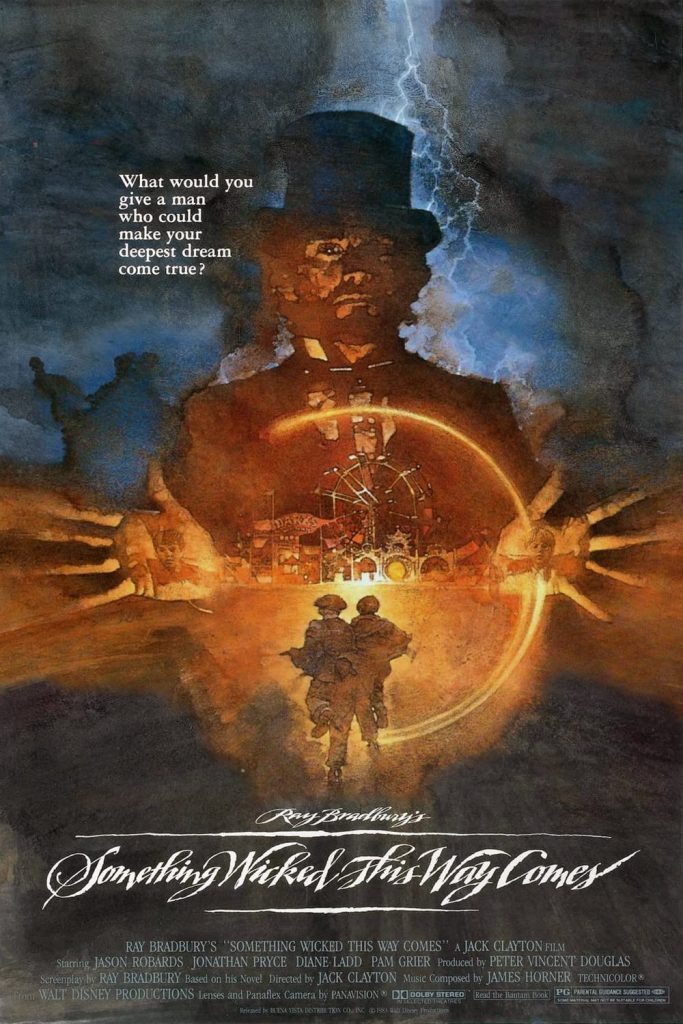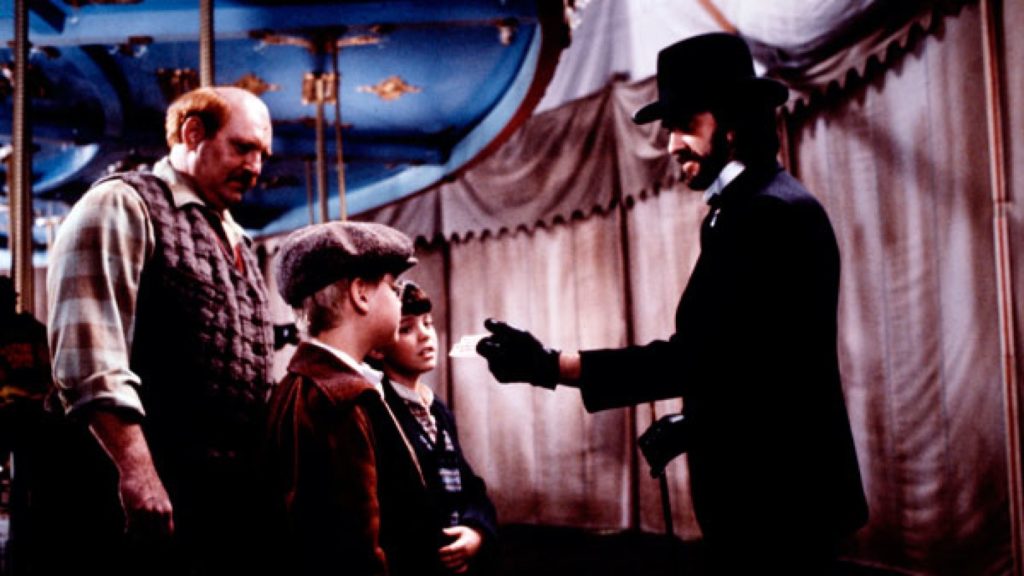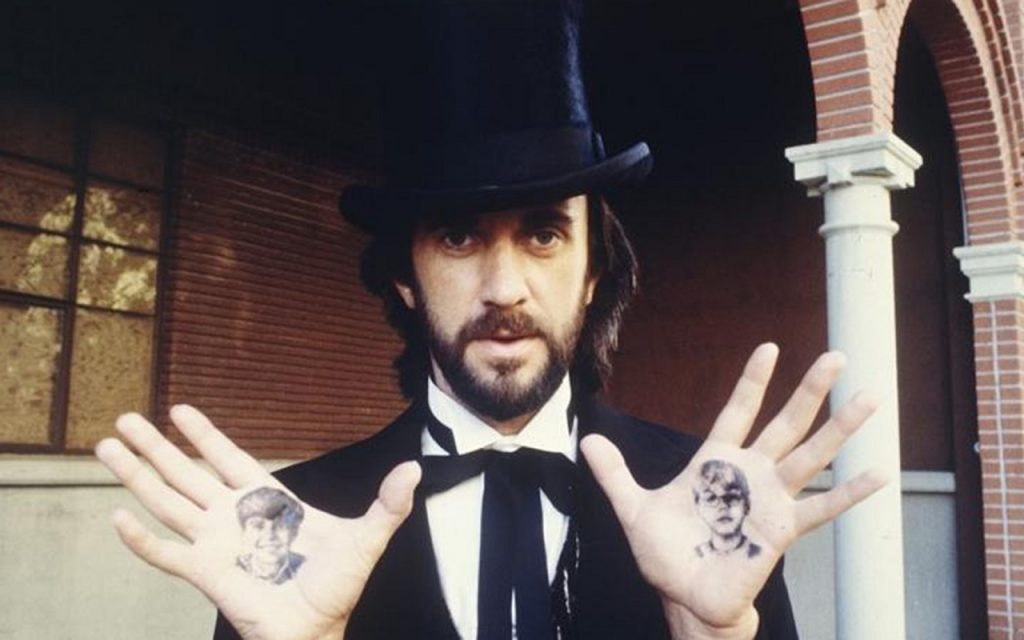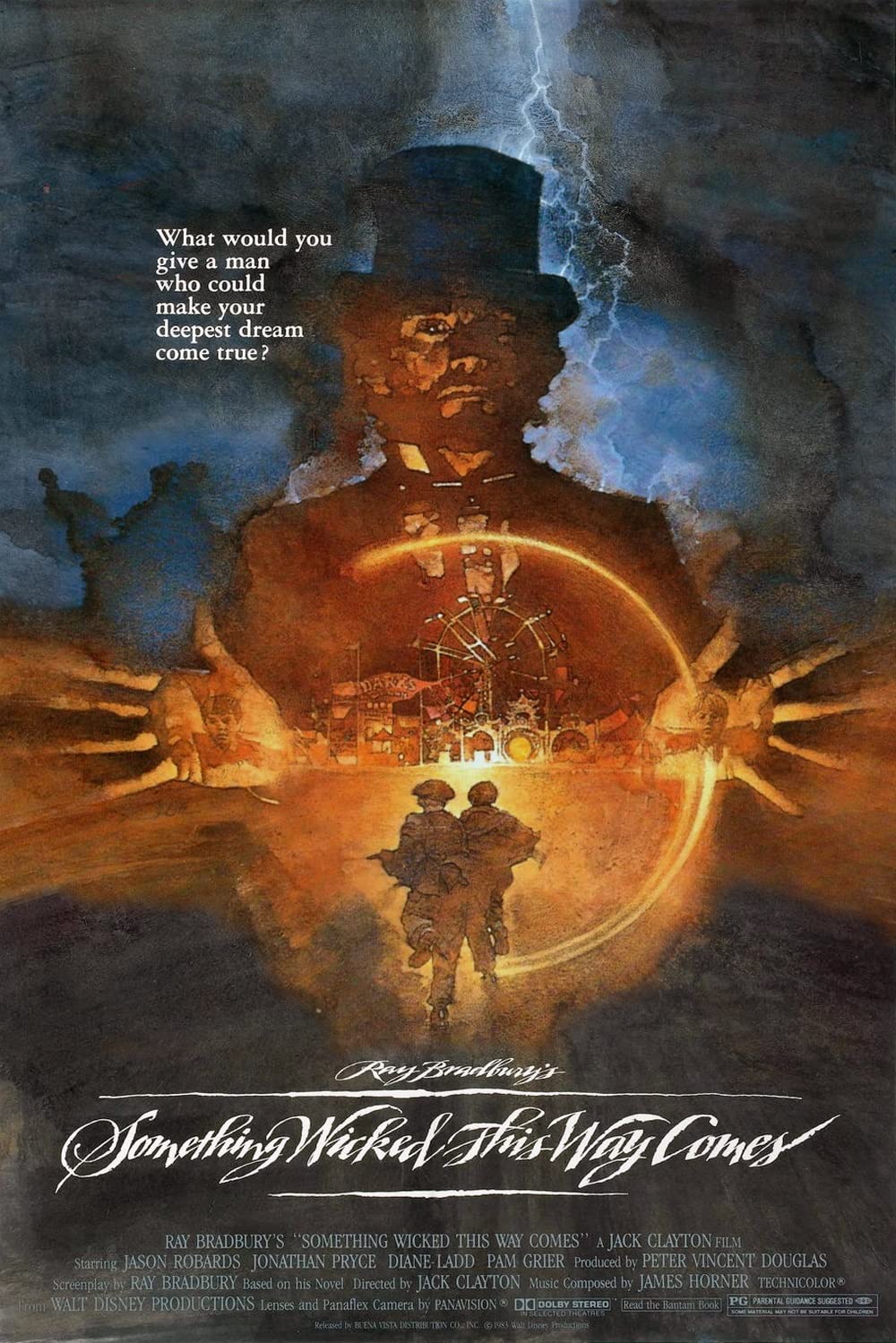For as long as I can recall, I’ve always been fascinated by scary movies. I think it’s the fantastical elements of such films which originally drew me in. I’ve always had vivid dreams, and certain kinds of scary films have a surrealistic quality which has always appealed to me. And, of course, there’s the spine-tingling thrill of anticipating the dreadful unknown.
When I was a kid, I wasn’t allowed to watch many scary movies. I had seen “Poltergeist” when I was probably six, and it scared the bejeezus out of me! I became kind of obsessed with the film, and terrified of my closet at night. My parents thus limited what scary movies I was allowed to see.
And so, in the fall of 1984 or ’85, when the Disney Channel announced an October lineup including two scary films — “The Watcher in the Woods,” and “Something Wicked This Way Comes,” I was excited. I figured, if these movies were showing on Disney, I’d surely be allowed to watch.
I was especially keen on “Something Wicked,” because it was based on a Ray Bradbury story, and somehow I was already familiar with Ray Bradbury and liked his stuff. It was about two kids who were around my own age, and it revolved around an evil supernatural carnival, and there was a tall scary dude who spoke in creepy Shakespeare quotes. And I mean, it had one of the best movie-posters I’d ever seen!

I recall that this movie was showing late one night, and my parents wouldn’t let me stay up, so I figured out how to program our VCR to record it. And then I had to wait all the next school day, until I came home, to find out whether or not the film had successfully recorded. And it had! And I watched it. And I dug the shit out of it, and it became one of my favorite movies for a few years, at least.
I kind of forgot about that film for a long time, kind of wrote it off as some dumb shit I liked as a kid. I forgot most of the film’s details, except for a few things.
One of those details was the way in which the two boys at the center of the film, best friends Jim Nightshade and Will Halloway, kind of represent two opposing viewpoints on adolescence. Jim is the one who wants to be older, the one “ulcerating to be a man,” as the film’s villain, Mr. Dark, lyrically puts it. Will is the one who wants to hold onto his boyhood; he’s the one who fears the loss of innocence. This difference is a dividing-line which threatens to become a rift in their friendship.
And that was a rift I felt quite personally in my own life, around that time. My best friends were becoming interested in girls, and starting to embrace vices that I suppose made them feel older or gave them the illusion of independence — things like drinking, smoking pot, vandalism, theft, etc. And meanwhile there was I, slowly figuring out that I was gay, terrified of what that might mean for my future, knowing to my core that this was my own secret to keep, and secretly wishing that I might never have to face the complications of adult life.
There was excitement and joy in my adolescence, to be sure. But the fear and terror were always there, hanging in the air like the blade of a guillotine. Things eventually got better.

Recently, I found myself writing a song about adolescence, about the excitement and terror of that time in life, to kind of put a circle around those feelings I had so palpably felt and which I can still clearly recall. In this way, my mind was drawn back to that movie. I hadn’t seen it since I was a kid. But thinking about it, I found a well of symbolism and language from which to draw. Bradbury had done some work for me, it seemed.
I was a little shy of embracing that particular influence at first, because it seemed so dopey. I mean, to watch it now, the film is more than a little cheesy. But you know, I feel like my songs are often a little humorless — and bringing in a cheesy movie that I’d loved as a kid, as a big point of influence, seemed like a fun thing to do. And so the decision was made, and some levity was found.
Of course, that gave me the song’s title, and its refrain. I mean, the phrase “Something wicked this way comes” was a pitch-perfect evocation of what I was trying to say. I couldn’t have asked for a better line to anchor the chorus.
And I didn’t feel too bad about nicking that phrase from Bradbury. I mean, after all, Bradbury nicked it from Shakespeare. It is a phrase well-traveled.
– Mazus

